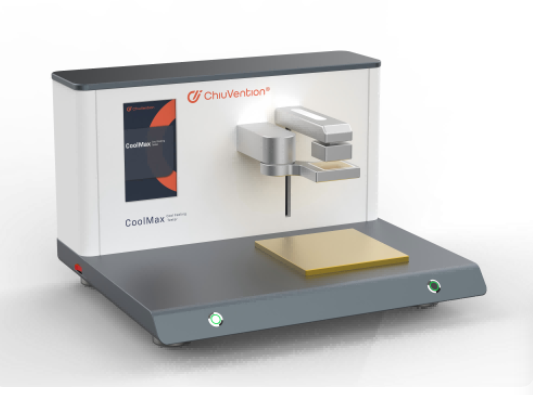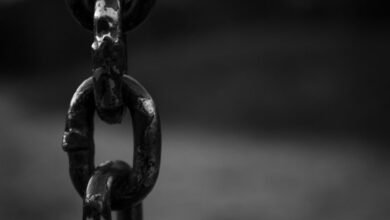The Ultimate Guide to Choosing a Reliable Textile Testing Instrument Manufacturer

Introduction
In today’s competitive textile industry, ensuring the quality, durability, and performance of fabrics is crucial. This is where textile testing instruments play a vital role. Whether you are a textile manufacturer, a research institution, or a third-party laboratory, choosing a reliable textile testing instrument manufacturer is essential for accurate and consistent results.
This guide will explore key factors to consider when selecting a manufacturer, the most essential textile testing instruments, and why working with a reputable can improve your quality control processes.
Why Textile Testing Matters
Textile testing is a critical process that ensures fabrics and garments meet industry standards and consumer expectations. It helps manufacturers:
- Maintain consistent product quality
- Comply with international regulations (ISO, ASTM, AATCC, etc.)
- Reduce product defects and returns
- Enhance brand reputation
- Improve fabric performance for specific applications
With increasing global demand for high-quality textiles, investing in advanced textile testing instruments is no longer optional—it is a necessity.
Key Factors in Choosing a Textile Testing Instrument Manufacturer
Selecting the right manufacturer for textile testing equipment requires careful evaluation. Here are the most important factors to consider:
1. Industry Experience and Reputation
A well-established manufacturer with years of experience is more likely to produce high-quality testing instruments. Look for companies with:
- A strong presence in the global textile industry
- Positive reviews from customers and industry experts
- Certifications and accreditations (ISO 9001, CE, etc.)
2. Range of Testing Equipment
A leading manufacturer should offer a comprehensive range of textile testing instruments, including:
- Fabric Strength Testers – Tensile, tearing, and bursting strength testers
- Color Fastness Testers – Washing, rubbing, and light fastness testers
- Abrasion and Pilling Testers – Martindale, Wyzenbeek, and pilling resistance testers
- Moisture and Air Permeability Testers – Hydrostatic head and air permeability testers
- Thermal and Comfort Testing Equipment – Thermal conductivity and moisture management testers
The broader the product range, the more likely you are to find instruments that suit your specific testing needs.
3. Compliance with International Standards
Ensure that the manufacturer’s instruments comply with widely accepted testing standards such as:
- ISO (International Organization for Standardization)
- ASTM (American Society for Testing and Materials)
- AATCC (American Association of Textile Chemists and Colorists)
- GB (Chinese National Standards)
Compliance with these standards guarantees accurate and repeatable test results.
4. Technology and Innovation
The best textile testing instrument manufacturers continuously innovate to improve testing accuracy, efficiency, and automation. Features to look for include:
- Digital interfaces and software integration for real-time data analysis
- AI-driven automation to reduce human error
- IoT-enabled instruments for remote monitoring and data sharing
5. Customization and Technical Support
Some manufacturers offer custom solutions to meet specific testing requirements. Additionally, strong technical support is crucial for:
- Installation and training
- Equipment calibration and maintenance
- Troubleshooting and repairs
A manufacturer with excellent after-sales service ensures that your testing operations run smoothly.
Essential Textile Testing Instruments and Their Functions
Now, let’s explore the most commonly used textile testing instruments and their applications.
1. Tensile Strength Tester
- Measures fabric strength by applying force until it breaks
- Essential for quality control in industrial textiles, protective clothing, and upholstery
2. Martindale Abrasion and Pilling Tester
- Evaluates fabric durability by simulating wear and tear
- Used for apparel, automotive fabrics, and home textiles
3. Color Fastness Tester
- Determines how well fabric color withstands washing, rubbing, and light exposure
- Ensures compliance with international dyeing and printing standards
4. Air Permeability Tester
- Measures how much air passes through a fabric
- Critical for sportswear, medical textiles, and filtration fabrics
5. Moisture Management Tester
- Assesses how well a fabric absorbs, spreads, and dries moisture
- Ideal for performance textiles and sportswear development
6. Flammability Tester
- Tests a fabric’s resistance to ignition and burning
- Mandatory for safety compliance in textiles used in furniture, transportation, and protective clothing
Top Textile Testing Equipment Suppliers
If you are looking for a trusted textile testing equipment supplier, consider companies that provide:
- A broad selection of certified testing instruments
- Competitive pricing and flexible payment options
- Fast delivery and international shipping
- Comprehensive user training and technical support
Well-known suppliers include:
- James Heal – UK-based, known for precision textile testing solutions
- SDL Atlas – A leading global provider of textile testing instruments
- Uster Technologies – Specializes in quality control solutions for the textile industry
- Testex – Swiss company offering high-precision testing equipment
Future Trends in Textile Testing
As the textile industry evolves, so do testing technologies. Some key trends shaping the future include:
1. Automation and AI Integration
- Reducing manual testing errors
- Enhancing efficiency through automated data collection
2. Sustainable Testing Solutions
- Eco-friendly testing processes
- Instruments designed to minimize water and chemical use
3. Smart Textiles Testing
- Ensuring performance and durability of electronic textiles (E-textiles)
- Evaluating sensor integration and wearability
4. On-Site and Portable Testing Devices
- Enabling real-time quality checks in textile production lines
- Compact and wireless testing solutions for remote locations
Conclusion
Choosing the right textile testing instrument manufacturer is crucial for maintaining high product standards, ensuring regulatory compliance, and optimizing production efficiency. By focusing on factors such as industry reputation, technological innovation, and international standard compliance, you can select a manufacturer that meets your needs.
Additionally, partnering with a reliable ensures access to high-quality instruments, technical support, and long-term value.
With advancements in automation, AI, and sustainability, the future of textile testing is more efficient and accurate than ever. Investing in the right testing equipment today will help you stay competitive in the evolving global textile industry.
For more information on textile testing methods/standards
or textile testing machines, contact us:
What’s App: +86 180 2511 4082
Tel: +86 769 2329 4842
Fax: +86 769 2329 4860
Email: sales@tes.hk





